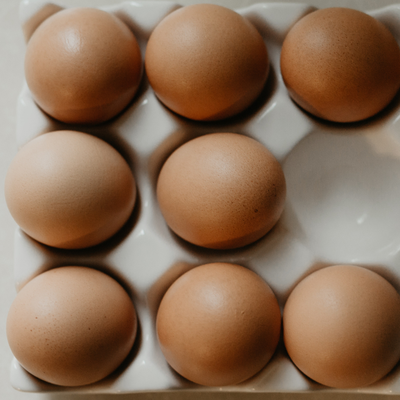

Everything You Need To Know About Cholesterol
The Basics
Cholesterol is a waxy substance found in our blood that has several important functions, explains Michael Sam-Yorke, pharmacist and clinician. “Cholesterol is present in every cell throughout the body. The body needs a certain amount of it to create hormones, vitamin D and compounds that assist with digestion. Contrary to popular belief, the body needs cholesterol to function properly, and the body is actually capable of creating the cholesterol it needs. However, cholesterol can also be obtained from the diet – namely from animal-derived sources such as cheese and meat – and too much of it in the bloodstream can lead to an increased risk of heart attack and stroke.”
Good Versus Bad…
It’s well known that elevated cholesterol isn’t necessarily a good thing, adds Dr Hannah Douglas, consultant cardiologist at The Cardiac Clinic at London Bridge Hospital, but it’s less widely known that there are two types of cholesterol: ‘good’ high-density HDL cholesterol and ‘bad’ low-density LDL cholesterol. “HDL cholesterol absorbs the LDL cholesterol, taking it to the liver to be modified and removed from the body as a waste product. The activity of healthy levels of HDL cholesterol helps lower the risk of cardiovascular problems such as strokes and heart disease,” she explains.
The Symptoms…
In most cases, high cholesterol is a silent problem. It typically doesn’t cause any symptoms, which is why routine screening is important. The experts explain high cholesterol is more common than you may think in younger women – and that in these cases, it tends to be genetic. “But unless you get it checked, you probably won’t know,” adds Michael. “Instead, it’s one of those things that manifests and can eventually lead to heart disease, heart attacks or strokes.” Dr Adam Staten, GP and clinical director at One Day Tests, says clues you may have high cholesterol include having close relatives who have suffered heart attacks or strokes at a young age. “In rarer cases, you may notice small white lumps around your eyes – known as xanthelasma – or nodules on tendons like the Achilles tendon. These are cholesterol deposits and signs of high blood cholesterol.”
The Risk Factors…
“Eating saturated and trans fats can raise cholesterol levels. Foods that are naturally higher in cholesterol, such as red meat and full-fat dairy products, also increase your risk,” says Adam. “Smoking also damages the walls of your blood vessels, making them more prone to accumulate fatty deposits. Smoking may also lower your levels of good cholesterol.” Experts unanimously agree that obesity also plays a part – having a BMI of 30 or greater increases your risk – while a lack of exercise affects the body’s ability to make good cholesterol.
Know Your Numbers…
As a rough guide, total cholesterol should be less than 5mmol/L (millimoles per litre). LDL should be less than 3mmol/L. HDL should be more than 1mmol/L. “However, it’s a little more nuanced than that,” says Adam. “Two people may have the same cholesterol level and one will be offered treatment and the other won’t. GPs today tend to think about cholesterol in terms of overall risk. Your cholesterol reading is put into a calculator along with other factors like your age, sex, BMI, family history and smoking status. This then gives you an individual risk factor.” To get your levels checked, chat to your GP. Private tests are also widely available and aren’t expensive – OneDay’s home testing kit is £39.
How To Get Your Cholesterol Levels Back On Track…
Get On Top Of Bad Habits
“If a test reveals your cholesterol levels are high, you should take it seriously and use it as a prompt to look at your lifestyle. Cholesterol is just one of several key risk factors, which include other factors such as high blood pressure (the two can go hand-in-hand), obesity and high blood sugar levels that can be pre-diabetic. But it’s not all bad news – all of these, including cholesterol, can be improved with a better diet and more exercise.” – Adam
Eat A Mediterranean Diet
“What you eat plays a significant role in managing cholesterol levels. Cut back on dairy products like cream and butter, red meat like beef and lamb, and processed meat like sausages and bacon – these are all high in cholesterol and shouldn’t be eaten regularly. The Mediterranean diet has been proven to lower bad cholesterol. This is largely attributed to the use of olive oil, which is rich in unsaturated fatty acids that work to lower LDL and improve HDL levels. Beans, fresh fruit, oily fish like salmon and sardines, avocado and chia seeds can also reduce unhealthy cholesterol levels.” – Hannah
Up Your Fibre Intake
“Fibre bulks out the intestines and stimulates the passage of food through the gut. As food moves along, the fibre content helps reduce the absorption of cholesterol into the bloodstream. Foods like chia seeds and oats contain soluble fibre, which bind to the bad cholesterol in your digestive system and help the body get rid of it.” – Dr Deborah Lee, GP at Dr Fox Online Pharmacy
Stay Active
“Exercise helps lower LDL cholesterol and raise HDL cholesterol. Regular exercise will also help you maintain a healthy weight, which can further reduce your risk of high cholesterol. Aerobic exercise – the kind that makes you mildly out of breath – with strength training is the best approach, but anything is better than nothing.” – Michael
Give Eggs The Green Light
“Egg yolks are rich in cholesterol, but this shouldn’t be a problem for most people, as the cholesterol in eggs doesn’t have a significant effect on blood cholesterol. The cholesterol in eggs doesn’t seem to raise cholesterol levels the same way foods rich in trans and saturated fats do. Around three to four eggs per week is fine. There is also a generally held belief that shellfish raises cholesterol levels. This may be because shellfish contains less omega-3 and marginally more cholesterol than other types of fish. However, shellfish isn’t high in cholesterol, and some cholesterol is needed in the diet.” – Deborah
Stress Less
“Taking care of stress levels is crucial to keeping cholesterol levels healthy. High levels of stress hormones in the body can cause an increase in LDL cholesterol and a decrease in HDL cholesterol. Add stress-reducing activities like deep breathing, yoga and meditation into your daily routine.” – Michael
Swap Butter For Benecol
“The likes of Benecol and Flora ProActiv contain plant sterols, which can naturally lower cholesterol. If you take in 1.2-2.4g of plant sterols per day, you can lower your cholesterol by 10%. As a general rule, aim for two to three portions of fortified products – milks, spreads and yoghurts – per day.” – Deborah
Stock Up On Cholesterol Superfoods
“Oats are an excellent, cholesterol-friendly food, while avocados are a great source of unsaturated fats. Mash an avocado and serve on a slice of wholegrain toast or make your own guacamole. Baked beans on toast is also a fantastic cholesterol-lowering meal. At the same time, flaxseed and green tea may lower LDL cholesterol, fish oil may help reduce triglycerides and garlic may reduce total cholesterol.” – Deborah
For more from the experts, visit DoctorFox.co.uk, OneDayTests.com & HCAHealthcare.co.uk.
DISCLAIMER: Features published by SheerLuxe are not intended to treat, diagnose, cure or prevent any disease. Always seek the advice of your GP or another qualified healthcare provider for any questions you have regarding a medical condition, and before undertaking any diet, exercise or other health-related programme.
DISCLAIMER: We endeavour to always credit the correct original source of every image we use. If you think a credit may be incorrect, please contact us at info@sheerluxe.com.